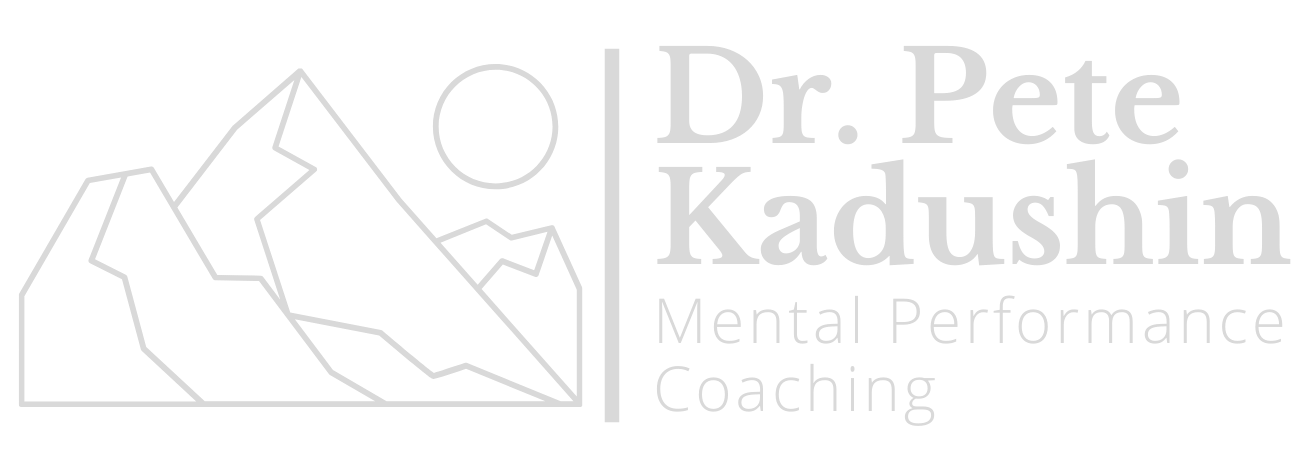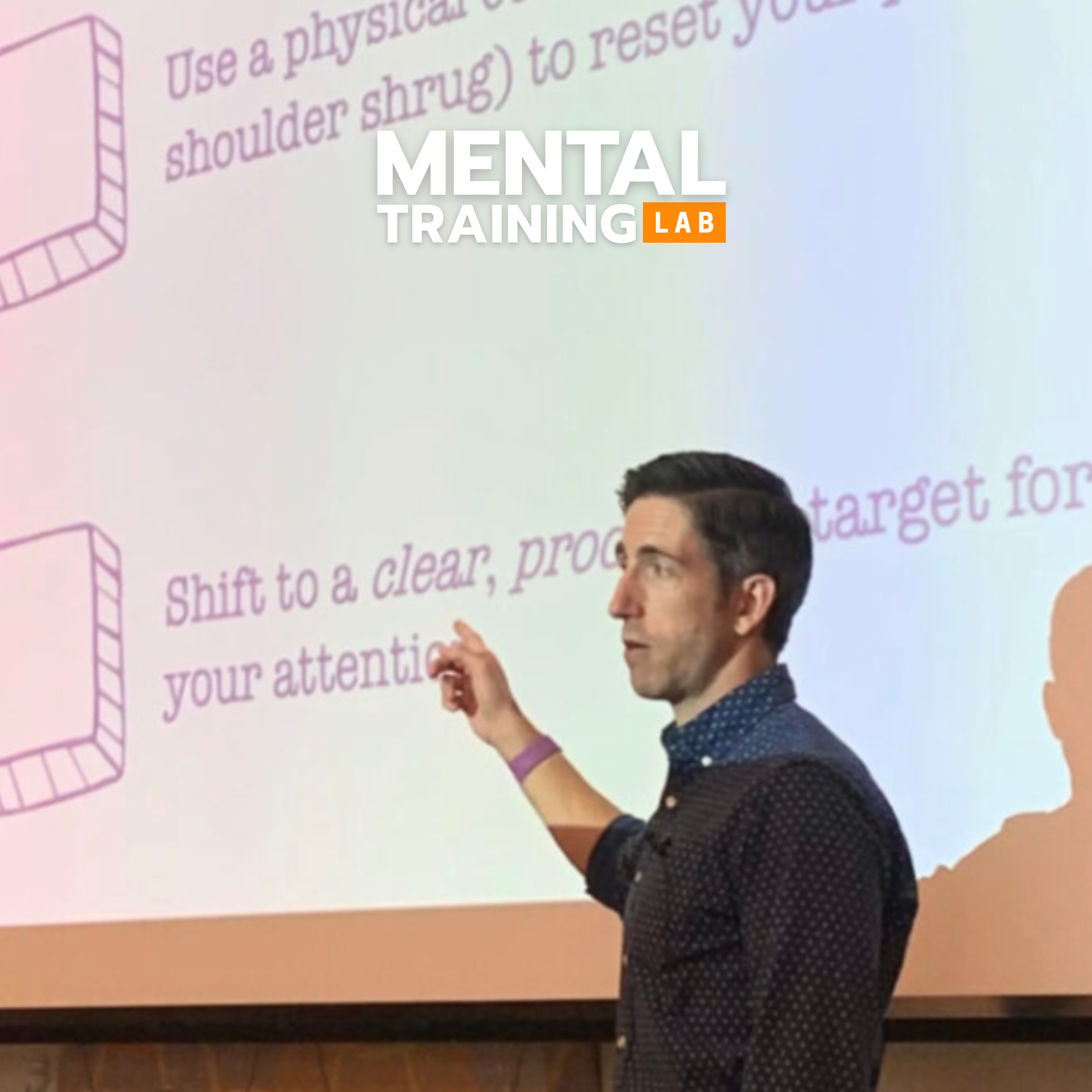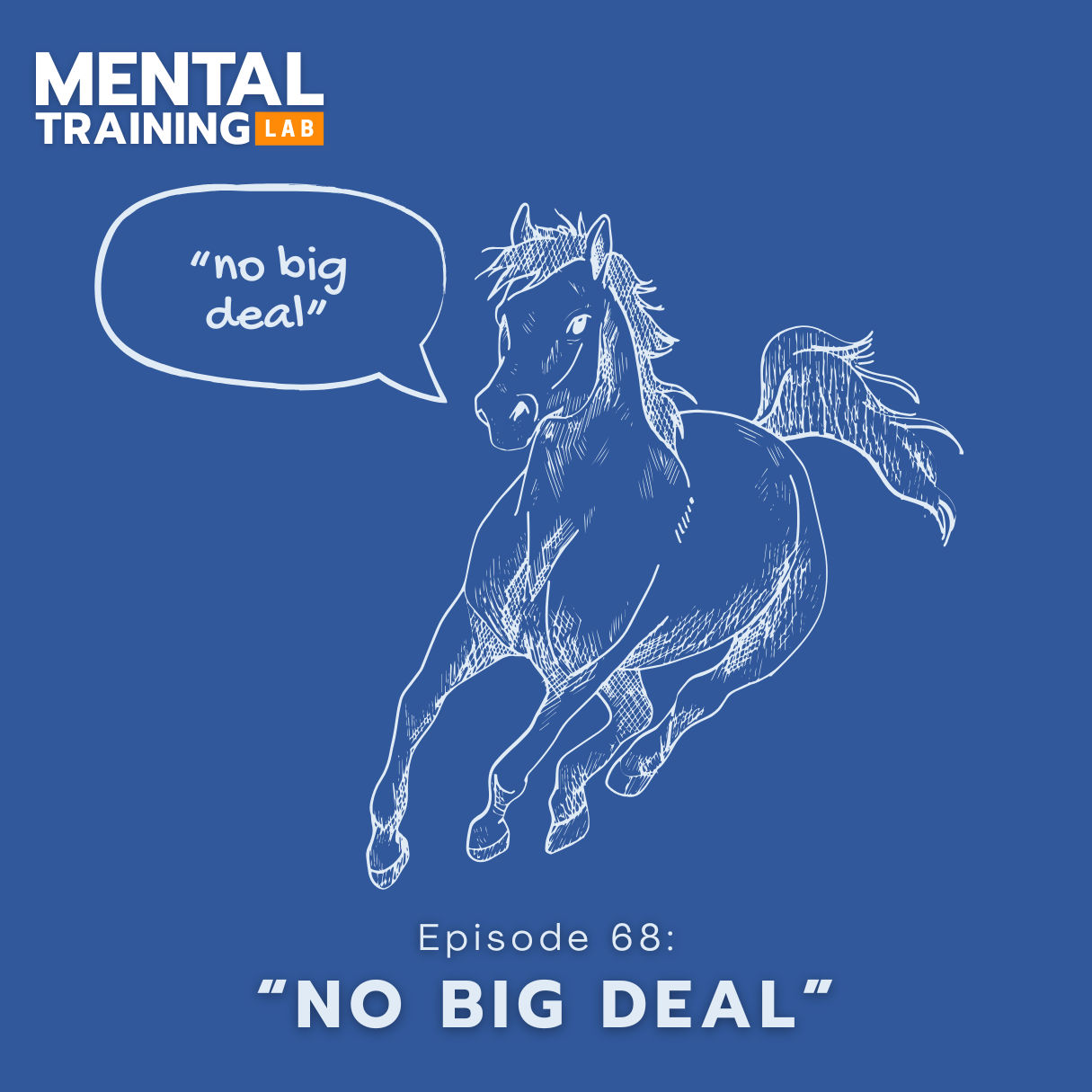Ep. 52: When a Pro Golfer Runs a Marathon: Lessons in Mental Performance from Scott Stallings and Steve Magness
Imagine you're a professional golfer—used to precise movements, controlled environments, and meticulous strategy. Now, picture deciding to run the Boston Marathon with essentially zero running experience. Sound challenging? That's exactly what PGA Tour pro Scott Stallings did, inspired by performance expert Steve Magness and his book, Do Hard Things. This incredible journey wasn't just a test of physical stamina—it was a deep exploration of mental performance, resilience, and personal growth.
I recently had the pleasure of sitting down with Scott and Steve on the Mental Training Lab podcast. Our conversation delved into Scott's marathon journey, how Steve’s insights got his feet moving in response to season-ending surgery, and the powerful lessons they both uncovered about mindset, adaptability, and embracing discomfort.
Meet the Guests: Scott Stallings and Steve Magness
Scott Stallings is a seasoned PGA Tour golfer known for his dedication, consistency, and relentless pursuit of improvement. When he stumbled upon Steve Magness' book, he felt an instant connection—it spoke directly to his experience having been injured in the 2024 season, undergoing two surgeries and a prolonged recovery. Despite having virtually no running background, Scott took on the Boston Marathon as a way to challenge himself mentally and physically during that process.
Steve Magness is an accomplished performance expert, coach, and author whose work bridges the gap between science and practical application. In Do Hard Things, Steve explores the outdated definitions of mental toughness and being more connected to one’s experience can help humans push past perceived limits.
Together, Scott's first-hand experiences and Steve's evidence-based insights created a rich discussion that offers powerful, actionable lessons for anyone looking to grow, adapt, and excel.
Key Insights from the Conversation
Throughout our discussion, several key themes emerged that can directly enhance your mental performance and personal growth:
The power of maintaining a beginner's mindset
The critical difference between response and reaction
Building an effective support system
Developing deep self-awareness
The transformative power of stepping out of your comfort zone
Intentional training practices
Let's explore each of these themes in detail and identify clear, practical steps you can take today.
1. Embrace the Beginner's Mindset
One of the most striking insights from Scott's marathon experience was the value of embracing a beginner's mindset. Scott, an elite golfer, willingly stepped into an entirely unfamiliar world where he initially had no idea what he was doing. By approaching running with curiosity rather than self-criticism, he allowed himself to learn, make mistakes, and ultimately grow significantly.
Actionable Steps:
Try a completely new sport, hobby, or skill. It doesn’t matter if it’s yoga, painting, or rock climbing; just step outside your comfort zone.
Approach this new activity with openness and curiosity. Allow yourself to make mistakes without judgment.
Reflect on your experiences regularly. What are you learning about yourself and your approach? Where are you finding freedom as a beginner, and can you bring that back to your discipline of choice?
2. Practice Response vs. Reaction
Scott and Steve discussed at length the critical difference between reacting impulsively and responding thoughtfully under pressure. For Scott, this skill was vital both in marathon running and professional golf.
Actionable Steps:
Create mental space before making decisions, especially in stressful situations. Pause, extend your exhale on the next couple of breaths, and ask yourself, “What action will align with my values moving forward?”
Practice slowing down your thinking by introducing brief moments of mindfulness throughout your day.
Notice patterns in your behavior. When and where do you tend to react rather than respond? What is your nervous system like when you’re in full-blown reaction mode?
3. Build a Support System
Scott emphasized how crucial having the right support system was to his marathon journey. His caddy and running community were instrumental in providing guidance, encouragement, and honest feedback.
Actionable Steps:
Identify mentors, coaches, or peers who excel in areas you want to improve. Seek out their guidance.
Be genuinely open to receiving feedback. Encourage honest, constructive criticism to accelerate your growth.
Regularly connect with people who understand and support your goals.
4. Develop Self-Awareness
Both Scott and Steve stressed the importance of self-awareness in performance. Scott had to quickly learn to listen to his body during his marathon training, discovering his own limits and strengths rather than copying others.
Actionable Steps:
Regularly reflect on your performance, noting areas where you excel and areas needing improvement.
Learn to recognize your personal signals of fatigue, stress, and confidence. Connecting with your body will help you become your own best coach
Focus on your progress compared to your past self, instead of where other competitors are at or where people expect you to be.
5. Challenge Your Comfort Zone
Stepping out of his comfort zone was foundational to Scott’s journey. He shared openly about the struggles, mistakes, and surprising insights he encountered by placing himself in a totally unfamiliar situation. This pairs really well with trying something new and adopting a beginner’s mindset.
Actionable Steps:
Set a specific goal in an unfamiliar or uncomfortable domain.
Start small and gradually increase the level of difficulty.
Keep a journal documenting your learning process, challenges, and progress.
6. Practice Mindful Training
Steve Magness highlighted the critical role of mindful training, explaining that effective training isn't merely about volume—it's about intention, process, and patience. Scott’s mantra here was “Time, Repetitions, Attention to Detail”.
Actionable Steps:
Shift your training focus from immediate outcomes to intentional processes. Be clear about what you’re trying to accomplish during this training session, this drill, or this rep.
Pay attention to internal signals—like fatigue, excitement, or anxiety—during your training sessions.
Be patient with yourself, respecting your learning curve and progress rate.
Applying These Lessons to Your Life
Scott's marathon journey and Steve's insights remind us that real growth often lies in the discomfort of new experiences. They also underscore the importance of internal mindset shifts rather than external validations or metrics alone. Whether you're an athlete, business professional, or someone simply interested in personal development, these actionable steps can help you unlock new levels of performance and self-awareness.
My conversation with Scott Stallings and Steve Magness was not only inspiring but deeply instructive. Their combined perspectives offer us a blueprint for mental performance that transcends traditional ideas of toughness and discipline. Instead, it invites us to explore, experiment, and embrace vulnerability as pathways to genuine excellence.
Remember, the journey towards peak performance isn’t linear. It requires courage, curiosity, and continuous self-exploration. By adopting the insights shared by Scott and Steve, you'll equip yourself with tools that extend far beyond any single domain, empowering you to thrive in all areas of your life.
Now, it’s your turn—embrace that beginner’s mindset, find your own Boston Marathon, and discover what extraordinary things you’re truly capable of.




